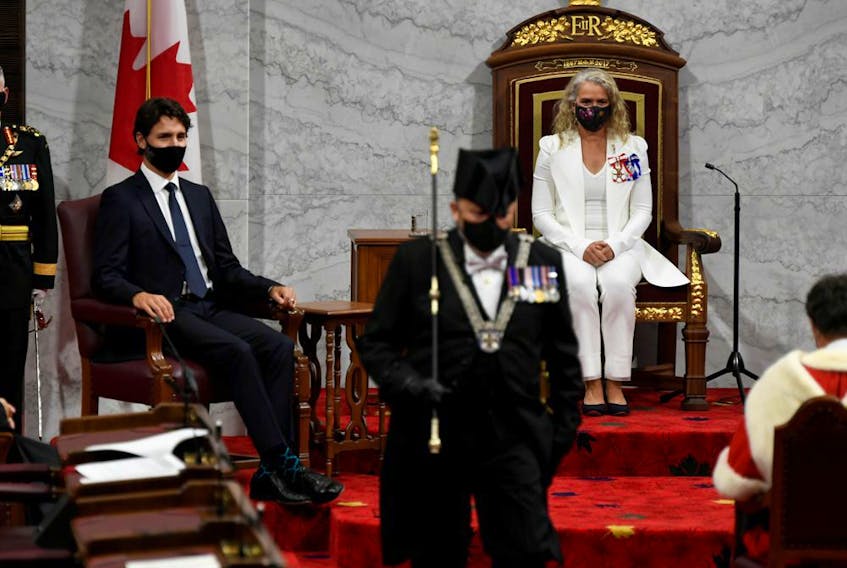The federal Liberal government says it will extend its employee wage subsidy to the summer of 2021, a decision that was welcomed by Canadian businesses groups. The move forms part of the government’s new campaign to try to return employment to pre-pandemic levels.
The government unveiled the pledge on Wednesday in the Throne Speech, which marks the return of Parliament and outlines the government’s priorities for the future.
One of those priorities will be to continue to support people and businesses for the duration of the COVID-19 crisis with the Canada Emergency Wage Subsidy (CEWS).
As of Sept. 13, more than one million applications for the program have been approved and more than $35.3 billion in subsidies have been paid out, allowing employers to avoid layoffs.
However, while the government funding has helped, the speech read Wednesday by Governor General Julie Payette acknowledged that both unemployment and underemployment remain high. The former, for instance, was still at 10.2 per cent as of August, according to Statistics Canada.
The federal government says it will now try to create more than one million jobs “using a range of tools, including direct investments in the social sector and infrastructure, immediate training to quickly skill-up workers, and incentives for employers to hire and retain workers.”
One specific way the government plans to create jobs is with an extension of the wage subsidy beyond its 2020 deadline, “right through to next summer,” the throne speech says.
“The Government will work with businesses and labour to ensure the program meets the needs of the health and economic situation as it evolves,” it adds.
CEWS is offered to Canadian employers who have taken a hit to their revenue during the pandemic, providing them money to cover a percentage of their employees’ wages. The Trudeau government tweaked the subsidy in July, expanding eligibility and providing for an extension of the program into December.
That’s really important because so many businesses are nowhere near 100 per cent (operational)
The decision to extend the subsidy even further was welcomed Wednesday by business groups.
“That’s really important because so many businesses are nowhere near 100 per cent (operational),” said Rocco Rossi, president of the Ontario Chamber of Commerce.
The Canadian Federation of Independent Business warned earlier this week that, at the economic recovery’s current pace, small-business sales will take a year and five months to return to normal. Industry group Restaurants Canada also said that, based on data collected since March, at least 10 per cent of independent food-service establishments have closed forever, and that another 40 per cent of restaurants might not make it until next March without additional support.
There had been support in corporate Canada as well for extending the wage subsidy. A recent poll by audit firm KPMG LLP found 76 per cent of Canadian business leaders it surveyed thought the latest iteration of the subsidy “a good investment” for keeping Canadians working and helping the economy recover.
Even so, CFIB President Dan Kelly said his group is hopeful the federal government will adjust the wage subsidy even further, as its current phase-out trajectory means the amount that employers can get is falling.
While CEWS began as a 75-per-cent wage subsidy for firms that could show revenues had fallen by 30 per cent or more because of COVID-19, the adjustments made by the government mean the subsidy varies depending on how much sales have dropped off. Although there is a possible top-up employers can get, the base subsidy is being gradually reduced.
“Hopefully, though, they’ll redesign the wage subsidy even over the course of the fall,” Kelly said in an interview. “But it is a critical measure.”
• Email: [email protected] | Twitter: GeoffZochodne
Copyright Postmedia Network Inc., 2020









